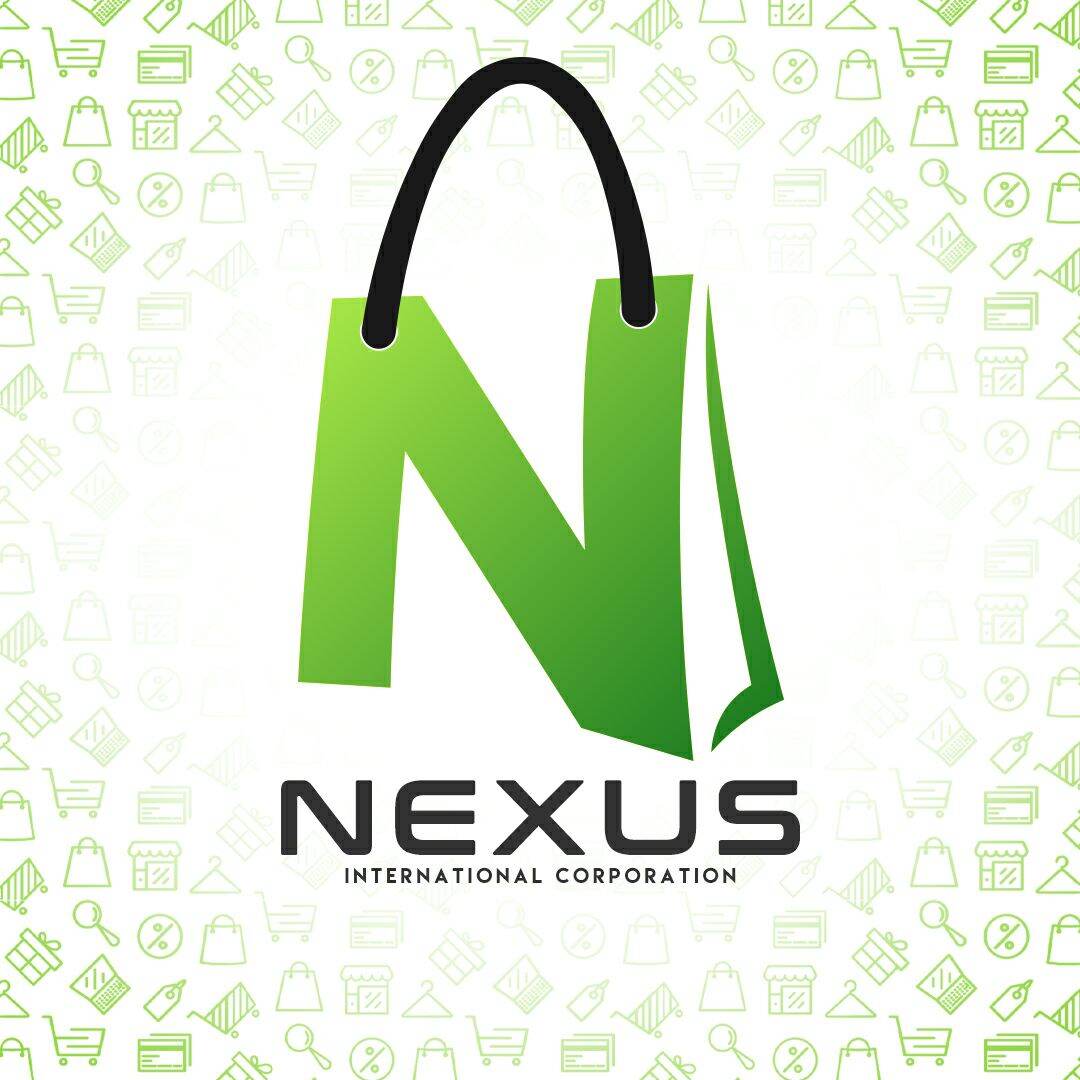CML Model Ordinance Economic Nexus & Marketplace Facilitators

The evolving landscape of e-commerce and online sales has prompted states to establish clear frameworks for taxing remote sellers and marketplace facilitators. The CML Model Ordinance introduces an innovative approach to determine economic nexus, ensuring that businesses with substantial economic activity within a state are appropriately taxed and held accountable. This approach helps formalize the nexus market, providing clarity and fairness for both taxpayers and government agencies. Marketplace facilitators play a critical role in this ecosystem, acting as intermediaries that simplify compliance for sellers and enhance revenue collection. As the nexus market continues to expand, understanding the regulations surrounding economic nexus and marketplace facilitators becomes essential for businesses aiming to operate effectively and legally across different jurisdictions.
Nexus Cross Asset Trading Strategies & Solutions
The concept of nexus in the marketplace plays a critical role in shaping tax compliance and regulatory strategies for businesses operating across multiple jurisdictions. A well-understood nexus establishes the connection between a taxpayer and a taxing authority, impacting how sales tax, income tax, and other regulatory obligations are managed. As companies expand their reach, especially in dynamic multi-asset trading environments, understanding nexus principles such as the CML Model Ordinance Economic Nexus and the obligations of marketplace facilitators becomes increasingly important. These frameworks help define when a business has sufficient physical or economic presence to be subject to taxation, thereby influencing market participation and compliance strategies.

Economic nexus laws, reinforced by the CML Model Ordinance, set clear standards for when remote sellers and marketplace facilitators must collect and remit taxes based on economic activity rather than physical presence alone. This shift has broadened the scope of taxable entities, making nexus a vital consideration for cross-asset trading strategies and solutions that operate across multiple regions. Firms engaging in cross-asset trading can leverage insights into nexus requirements to optimize compliance while minimizing risks associated with non-compliance.
Marketplace facilitators, as key players in the nexus market, bear significant responsibilities for collecting and remitting taxes on behalf of third-party sellers. Compliance solutions tailored for marketplace facilitators can streamline operations and reduce liabilities, ensuring adherence to regional nexus laws. These strategies are integral for managing cross-asset trading activities, where multiple platforms and jurisdictions are involved. By deploying targeted nexus solutions, companies can effectively navigate the evolving regulatory landscape and maintain seamless market operations across diverse geographical areas.

Overall, understanding and strategically managing nexus—particularly through advanced models such as the CML Model Ordinance and the role of marketplace facilitators—is essential for thriving in the complex nexus market. Implementing tailored cross-asset trading solutions not only ensures regulatory compliance but also enhances operational efficiency and market competitiveness in an increasingly interconnected world.
The humanitarian development nexus in action: A review and mapping of market-led approaches in forced displacement contexts International Labour Organization
The concept of a nexus market highlights the complex interconnections between economic development, humanitarian efforts, and policy frameworks, particularly in contexts of forced displacement. As populations are displaced due to conflict, climate change, or other crises, establishing effective market-led approaches becomes essential to promote sustainable livelihoods and foster resilience among affected communities. These approaches aim to create a functional economic space where displaced persons can access goods, services, and employment opportunities, contributing to both individual well-being and broader societal stability.
The CML Model Ordinance provides a legal framework to regulate economic activity related to displaced populations, establishing guidelines for operationalizing economic nexus and marketplace facilitation. The ordinance emphasizes the importance of defining economic nexus—where businesses or organizations have sufficient presence or activity within a jurisdiction—ensuring that entities adhere to local regulations while supporting market expansion in displaced environments. Marketplace facilitators play a critical role by acting as intermediaries that connect supply chains, service providers, and displaced communities in a manner that encourages inclusive economic participation.
The humanitarian development nexus involves a coordinated approach that merges immediate relief efforts with longer-term development strategies. This integrated perspective recognizes that sustainable solutions require addressing both the urgent needs of displaced populations and creating enabling conditions for economic growth. Market-led approaches are increasingly being adopted in this space, as they enable displaced communities to access formal markets, develop income-generating activities, and build economic self-reliance. Such strategies contribute to stability and social cohesion, facilitating a transition from dependence on aid to participation in productive economic activities.
Research and reviews in this field emphasize the importance of aligning policies like the CML Model Ordinance with the realities of force displacement and market dynamics. By mapping out successful models and identifying barriers, stakeholders can better design interventions that foster inclusive and resilient economic systems. Ultimately, a well-structured nexus market approach can serve as a catalyst for positive change—transforming displacement challenges into opportunities for economic development and social progress.
Which States Are Market Sourcing For Service Taxes?

The concept of nexus is a fundamental element in state taxation law, particularly when it comes to establishing a corporation’s obligation to collect and remit sales and use taxes. With the evolution of the digital economy, the CML Model Ordinance provides guidance on defining economic nexus and marketplace facilitators, ensuring states can effectively enforce tax collection standards. Understanding where economic nexus applies and how marketplace facilitators impact tax obligations is crucial for businesses operating across multiple jurisdictions.
Economic nexus is generally established based on a threshold of sales or transactions within a state, without the need for physical presence. This principle enables states to extend their tax authority to remote sellers and marketplace facilitators that generate substantial economic activity within their borders. The CML Model Ordinance stipulates specific criteria, such as exceeding a dollar sales threshold or transaction count, which trigger nexus and the requirement for tax compliance. This approach streamlines the process for states to implement fair and consistent tax collection policies in a digital economy.
Market sourcing is a key method used by states to determine the location where service-based or intangible transactions are taxable. Several states have adopted market sourcing rules for service taxes, which generally allocate income based on where the product or service is received or utilized by the customer. Commonly, these states source service income to the customer’s location, often based on the billing address or service delivery point, ensuring that taxing rights align with the economic activity’s geographic location.
States that typically utilize market sourcing for service taxes include:
- California
- New York
- Texas
- Illinois
- Florida
- Pennsylvania
- Ohio
- Michigan
- Georgia
- North Carolina
In the context of a nexus market, it is essential for businesses to understand the specific sourcing rules that apply in each state to ensure compliance and optimize tax planning strategies. As states refine their nexus standards and sourcing methodologies, maintaining awareness of the latest regulations facilitates better decision-making and reduces the risk of audits or penalties. Ultimately, a clear comprehension of these policies supports fair taxation and helps maintain a level playing field among remote sellers, marketplace facilitators, and traditional brick-and-mortar businesses.
Knowing Economic Nexus and Market-Based Sourcing in Taxation
Understanding the concepts of economic nexus and market-based sourcing is essential for businesses engaging in interstate commerce. These principles determine when a business is subject to state taxation based on its economic activity or sales volume in a particular jurisdiction. As commerce continues to evolve, particularly with the rise of digital and remote sales, knowing how nexus market factors into state tax obligations has become more critical than ever. By comprehending these guidelines, companies can ensure compliance while optimizing their tax strategies.

Nexus Factory New
Understanding economic nexus and market-based sourcing is essential for businesses navigating modern taxation frameworks. These concepts influence how states determine whether a company has sufficient connection, or nexus, to impose sales tax obligations. Historically, physical presence was the primary standard for establishing nexus; however, recent developments emphasize economic activity and market-based factors.
Economic nexus refers to a company’s sales volume or transaction amounts within a state, which can establish tax obligations even without a physical presence. Many states have adopted thresholds—such as a specific dollar amount in sales or a number of transactions—that when exceeded, create a nexus for tax purposes. This shift ensures states capture revenue from online and remote sellers operating within their markets without a physical storefront.
Market-based sourcing is a methodology states use to determine the location of sales for tax purposes, primarily in service and digital goods sectors. Instead of relying on where the seller is located, market-based sourcing assigns the sale to the customer’s location, aligning taxation with where economic activity occurs. This approach fosters fairness and reflects the modern digital marketplace’s dynamics.
The nexus market has become increasingly significant as businesses expand online, and states actively update their laws to keep pace with the evolving commercial landscape. Recognizing the importance of economic nexus and market-based sourcing helps companies stay compliant and optimize their tax strategies amidst changing regulations.
Marketplace facilitator nexus criteria in every state
Understanding economic nexus and market-based sourcing is essential for businesses involved in ecommerce and online sales. These concepts determine whether a business is subject to state sales tax collection responsibilities based on its economic activity within a state. As states continue to update their regulations, knowledge of *marketplace facilitator nexus criteria* becomes crucial, ensuring compliance and avoiding penalties. Each state has specific rules governing nexus, which can significantly impact how businesses operate across different jurisdictions.
**Economic Nexus** generally refers to the connection a business has with a state based on economic activity, such as sales volume or transaction count, rather than physical presence. Many states have established thresholds—for example, a specific dollar amount in sales or a number of transactions—that, once exceeded, create a tax collection obligation in that state. These thresholds vary by state and are designed to simplify compliance for remote sellers who do not have a physical storefront.
**Market-Based Sourcing** impacts how sales are attributed to a particular state for tax purposes, primarily focusing on where the customer receives the product or service. This approach often involves rules that determine the taxability based on the location of the purchaser, which can differ from traditional physical presence rules. Implementing accurate market-based sourcing strategies is vital for sellers to determine their tax liabilities across multiple jurisdictions.
Most states also have specific **marketplace facilitator nexus criteria**. A **marketplace facilitator** acts as an intermediary that provides a platform for third-party sellers to reach customers. In many states, if a marketplace facilitator exceeds certain sales thresholds, it is responsible for collecting and remitting sales tax on behalf of third-party sellers. These criteria vary by state but generally include thresholds for total sales or transaction volume routed through the platform.
- States with Economic Nexus Laws: Nearly all states enabling remote sales tax collection have established economic nexus thresholds. These laws typically activate when certain sales or transaction thresholds are met, prompting the obligation to collect tax regardless of physical presence.
- Market-Based Sourcing Rules: Most jurisdictions assign sales to the customer’s location, especially for tangible products, while some rules may differ for services or digital goods. Staying compliant requires understanding each state’s sourcing rules and applying them correctly.
- Marketplace Facilitator Nexus Criteria: Markets that facilitate sales across state lines often assume responsibility for tax collection if thresholds are exceeded. Many states require marketplaces to register, collect, and remit sales tax, streamlining compliance for individual sellers.
- This study investigates the nexus between the energy market and its determinants in eight countries from the Asia-Pacific region over 1994–2018.
- A persistent challenge you’ll run into as an online marketplace seller is that states do not have one shared definition of nexus and the rules and definitions change constantly.
- Population growth is a significant driver of imminent energy trends, with the world’s population expected to increase by 26%, from 6.8 billion in 2009 to 8.6 billion in 2035 (International Energy Agency, 2011).
- The results show energy demand, prices, economic growth and industrialization positively affect the energy supply.
- If the activity is performed in two or more states, the receipts are assigned to the state in which the taxpayer performed a greater proportion of the activity, typically determined based on the location of the direct costs of performance.
By understanding and navigating the complexities of *nexus market* regulations—including economic nexus, market-based sourcing, and marketplace facilitator criteria—businesses can ensure compliance and optimize their sales strategies across different states. Staying informed about evolving laws helps prevent costly penalties and builds trust with customers by responsibly managing tax obligations.
Factor Presence Nexus Standards and Market-Based Sourcing: A Tough Combination for Service Businesses
Understanding the complexities of nexus standards is essential for service businesses operating across various jurisdictions. Two critical concepts in this area are economic nexus and market-based sourcing, both of which significantly influence how multistate tax obligations are determined. These standards have evolved to ensure states capture revenue from remote or out-of-state sales, but they also create a challenging environment for businesses to navigate.
Economic nexus establishes a threshold based on a company’s level of sales or transactions within a state, enabling states to impose tax collection responsibilities even without a physical presence. This standard has expanded the reach of tax rules, compelling remote service providers to carefully monitor their activity in each jurisdiction to avoid non-compliance. On the other hand, market-based sourcing requires businesses to source revenue to the customer’s location, often based on where the service is delivered or benefits are received. This approach aims to align taxable income more closely with where economic activity occurs.
When combined, these standards form a particularly tough scenario for service businesses, especially those engaged in cross-border transactions. The requirement to determine nexus through economic activity while also applying market-based sourcing principles complicates tax compliance and planning. This “nexus market” environment means companies must have robust systems to track sales thresholds and accurately source revenue, often leading to increased administrative costs and potential risks of audits.
Ultimately, navigating the interplay of economic nexus and market-based sourcing demands a strategic approach. Service businesses should develop comprehensive compliance frameworks that account for varying state rules, establish clear thresholds for nexus, and implement precise sourcing methodologies. Staying informed of evolving regulations and leveraging expertise can help mitigate compliance challenges and ensure adherence to state tax laws in this increasingly complex landscape.


